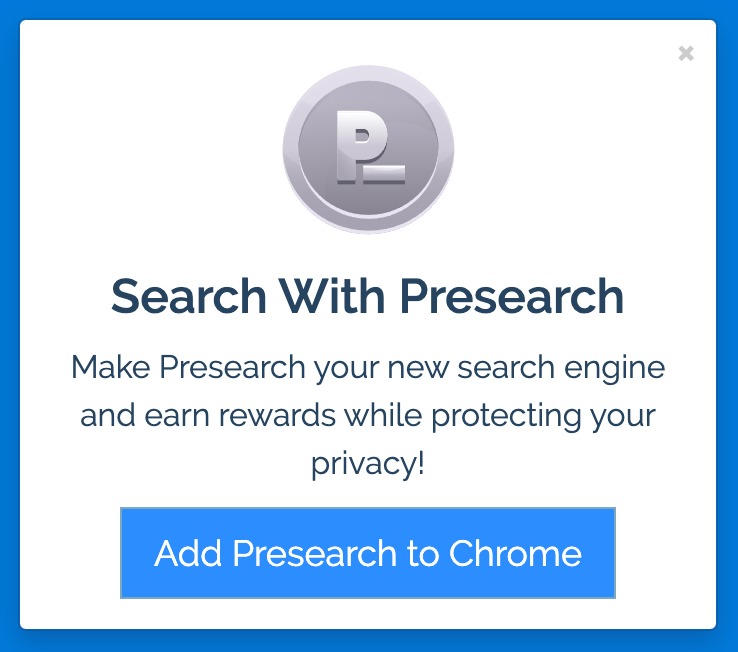What are Blockchain-based Search Engines?
Search engines have played a vital role in the growth of the Internet as a tool for commercial and economic activity. Today, the internet is dominated by large enterprises that process many billions of queries per day. Google is the leading search processor, and its refined algorithms manage the vast majority of the world’s search queries and connect them to advertisers.
Blockchain-based search engines offer a genuine choice for internet users that prioritizes their data security and privacy. For crypto-related ads, they are the most efficient and cost-effective crypto SEO & PPC marketing solutions.
The reach of Google’s search capacity is vast, and it connects with an audience estimated at up to four billion users worldwide. Search is among Google’s great achievements; the company exercises a high level of control and collects enormous amounts of user data. Through its global audience, advertising provides the major share of Google revenues. The use of personal data is a substantial concern for governments, advertisers, and internet users. On the Google platform, the use of personal data favors the user experience. This is why partnering with one of the top crypto SEO agencies is vital to long-term growth.
Blockchain-based search engines or BBSE offer an important alternative to search engines using centralized permissions and controls. The blockchain is a decentralized ledger system in which no single company can claim or control a user’s data. Blockchain-powered search does not build results based on a user’s history; the blockchain search models focus on the terms in the specific search to provide relevant results.
– How Blockchain Search Engines are Different Than Google
Blockchain search engines differ from centralized services like Google. The primary point of difference is in data collection: Google collects, stores, and utilizes personal and activity data on users, the decentralized services do not.
Blockchain search models differ from the centralized approach used by Google, Bing, and Yahoo. The blockchain structure is decentralized, and the system operates through a network of nodes. The nodes must operate in agreement and can confirm data only when the nodes agree on its accuracy and content. Node operators perform the essential functions of recording and preserving information and storing it in the transparent blockchain.
In blockchain technology, the search process is also decentralized. When a user submits a query to a blockchain-based search system, the search engine performs a search of data in the distributed ledger’s database. The peer-to-peer network of computers contributes to finding relevant results. The entire system works to distribute the search results, encrypt them, and store them in the blockchain. The focus of the blockchain search and results uses the terms of the search query.
Google and similar centralized systems use data focused on the user as well as the search terms. The centralized systems capture and keep data about the user. Over time, the centralized search engines amass a substantial amount of information about the user including browsing, clicks, and Internet interactions.
The user experience goes far beyond the terms and keywords in a search query in a centralized system. For example, users often find the subject of their queries appearing in other locations as advertising and other types of messaging. Tracking users across platforms and instances, centralized search engines can customize the user experience on the internet based on user-specific and personal information.
Google and centralized search services influence search results. Google has enormous resources and has created an effective area of control over information on the Internet. In nearly every category of information and research, users experience Google’s influence over the narrative. Similarly, Google affects advertisers’ reach into the internet audience. For a period in recent years, Google did not permit advertising by crypto-related businesses. Google revised its policy and permitted limited advertising by cryptocurrency businesses. Google policies limited consumer access to cryptocurrency until it met their conditions.
– Advantages of Blockchain-based Search Engines or BBSE
- Blockchain based search protects privacy. The blockchain search services do not monitor users, sell profiles to advertisers, and trace results back to searchers.
- Transparency adds protection. The system works with the query but not the user identity. The entire blockchain system can share the query and results.
- The system is not biased. Neutral search results do not favor advertisers or paying partners. Ranking by relevance is in the user’s interest rather than the search engine or its supporters.
- Free of economic self-interest. Blockchain based search organizations are communities that participate in governance and promote growth. The system has no economic stake in the outcome of searches or distribution of results.
– Benefits for Cryptocurrency and Crypto-related businesses
The centralized controls of the major search engines have limited advertising related to cryptocurrency. In March 2018, Google banned all crypto PPC ads and related advertising. Google modified its policy about five months later to admit Coinbase and other regulated currency exchanges. The revised policy permitted ads for wallets and exchanges, it continued to ban ads for ICO’s, DeFi, or particular cryptocurrency coins or tokens. The bans persisted until August 2021 when Google enacted the current policy that permits ads by wallets, and exchanges registered with the Federal Financial Crimes Network. However, our team is competent and as a Google Partner can have select projects run ads and partake in crypto PPC advertising.
– Advertising on Blockchain-Based Search
The movement towards Google alternatives using blockchain technology has advanced in recent years. The public concerns about privacy help drive the effort within the blockchain community. Decentralization is not a goal in and of itself, centralized control has brought many benefits including a highly responsive and massively scaled use of the internet for information sharing.
Decentralization does offer a reset for web search; the original vision was one that revolved around information and not advertising. The list below describes some of the leading examples of advertising on blockchain-based search networks.
Advertising on Brave Browser
Advertising on Brave browser (https://brave.com/ ) – The Brave browser added Brave Search in June 2021. Brave search offers an alternative to Google’s ad-driven tracking technology. Brave search offers an independent index of the Internet. It can reference other indexes when failing to find relevant results and offer both sets of results. Advertisers on the Brave platform (https://brave.com/brave-ads/) can use vivid images to attract viewers to their positions on the image rotation setup. Browsers get Native Push Notifications that connect to advertiser sites. Advertisers gain access to millions of viewers and consumers. The Brave ads platform has demonstrated successful branding and awareness growth metrics for advertisers.
Advertising on Nebulas
Advertising on Nebulas (https://www.nebulas.io/) is supported by an open source system for developers to place DApps. Nebulas has a cryptocurrency and a goal to compete with Google as a search engine. Nebulas offers search services to everyday users and detailed levels of support for developers. Developers can create and deploy DApps for marketing, advertising, and publishing content. The utility token (NAS) works for on platform fees and service payments. Users and developers can purchase NAS at crypto exchanges.
Advertising on Presearch
Advertising on Presearch (https://www.presearch.org/) – This innovative newcomer to blockchain search services rewards users and advertisers with crypto incentives. Searchers can gain the native token (Pre) for using the search engine. Advertisers can bid on the use of keywords, called keyword staking, to display ads. Searchers gain crypto rewards for using the search service and thus are incentivized to search, pursue information, and interact on the platform. Presearch is now the default search engine for all Android devices in Europe as of September 2021.
Advertising on BitClave
Advertising on BitClave (https://www.bitclave.com/) – The BitClave Active Search Ecosystem (or BASE) is the heart of BitClave. BASE is a public ecosystem that empowers users to own their personal and other data. Using BASE, system users can decide with whom and when to share their data. BASE consists of searchers, businesses, and ecosystem partners. BitClave offers direct advertising with targeted promotions to users that voluntarily share their information. The advertising can match users. BitClave offers a unique profit sharing option. BASER partners participate in income streams for successful transactions between businesses and customers connected to services they provide.
Advertising on Duck Duck Go
Advertising on Duck Duck Go (https://duckduckgo.com/?va=b&t=hc) – This Google challenger offers enhanced privacy and avoids unnecessary collection of user information. Duck Duck Go is not a blockchain-based search service; the search service structure protects privacy to a greater degree than the large, centralized search engines.
– The Challenge Ahead for Blockchain Search Services
The end of Google is not in sight nor predictable from today’s internet. Google has responded in some ways to the public interest in greater privacy. The message for users is to take control of your data and privacy.
Decentralization is a worthy goal, but it is not a perfect solution. For example, many governments put high priority on preventing the abuse of the internet by criminals and terrorists. The centralization of Google permits access to a broad swath of search queries which are a powerful tool for investigators. A decentralized system will likely require some adjustment to meet the needs of law enforcement.
Governance by community can be unwieldy and not responsive to needs for change, particularly quick reactions to unexpected events. Monetary incentives have driven the growth of Google, Bing, and Yahoo. Developers and content providers will have to develop similar beneficial arrangements within the structure of a blockchain based search service. The lack of stored data will require a different approach by marketing companies to target consumers.
Conclusion
The dominance of Google and other large, centralized search providers will likely continue. The alternatives to centralized search will also continue to innovate, expand, and grow. Users will have options that meet their specific needs and protect their interests in limiting the use of personal and other data. Cryptocurrency users, advertisers, and the cryptocurrency industry as a whole can take advantage of blockchain-based search companies to advertise, brand, and expand.
Blockchain-based search offers substantial advantages for cryptocurrency and related services and products. You can take advantage of the decentralized benefits of search engines. Using blockchain channels, you can advertise your cryptocurrency, DeFi products, or services using the innovative wave of the future.
Blockchain based search engines are the most productive and innovative cryptocurrency marketing solutions. Advertise your cryptocurrency token or exchange without the Limitations of cryptocurrency projects advertising on Google and Bing.














